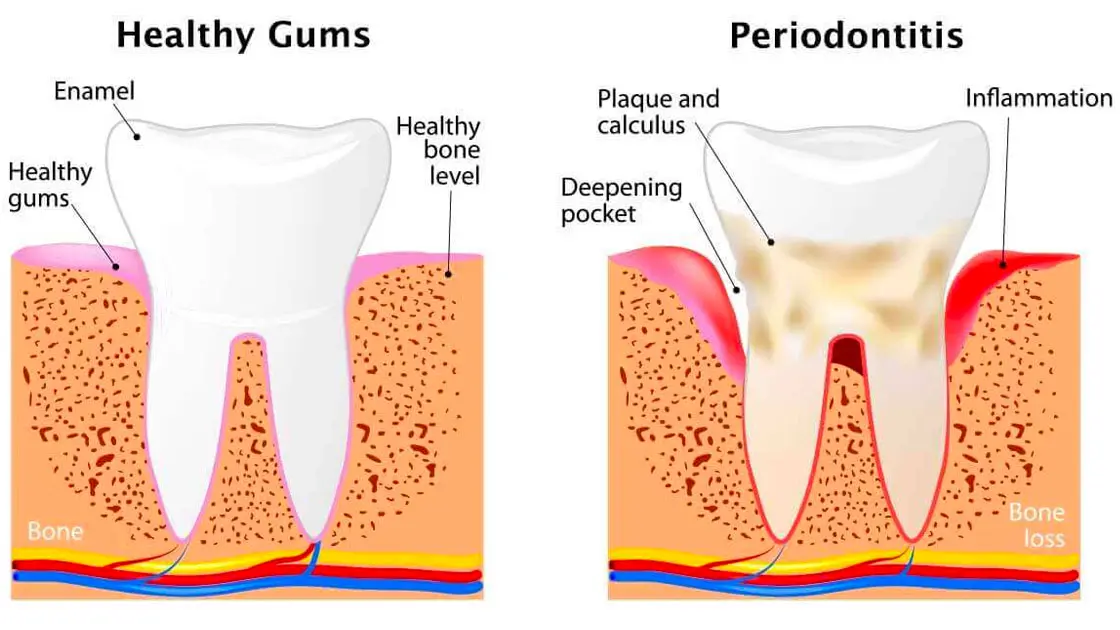
Periodontal Disease
Periodontal disease, or gum disease, can often be prevented by brushing your teeth, flossing, and having regular dental cleanings. Without regular care and maintenance, plaque can develop into tartar which can result in gingivitis if not treated professionally. Gingivitis can later progress into periodontal disease and can cause a myriad of oral problems. If you currently have gingivitis, a mild form of gum disease, or periodontitis, our team at the office of Dr. Scott Froum can help.
The following symptoms may indicate that you have gum disease:
- Chronic bad breath
- Swollen gums that easily bleed
- Pain while chewing
- Loose and sensitive teeth
- Receding gums or longer looking teeth
Stages of Periodontal Disease
Periodontal disease is a progressive condition caused by the presence of plaque and tartar on the teeth. Combined with bacteria in the mouth, plaque and tartar can eat away at the gum tissue, causing inflammation, bleeding, and eventual loss of the soft tissue that protects the teeth and jaw bones.
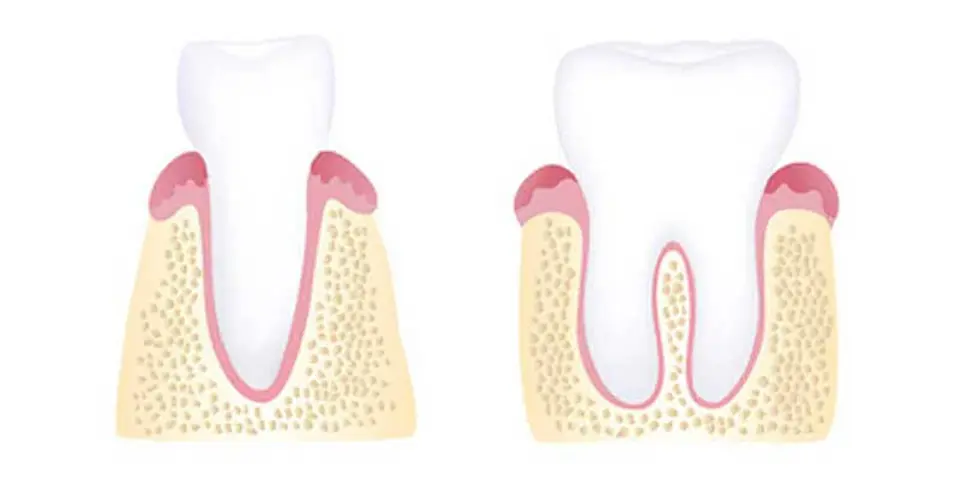
Healthy Gums
Firm, pink, gums attached to the teeth and supported by firm dense bone are the indicators of healthy gums and teeth that have the strong support they need.
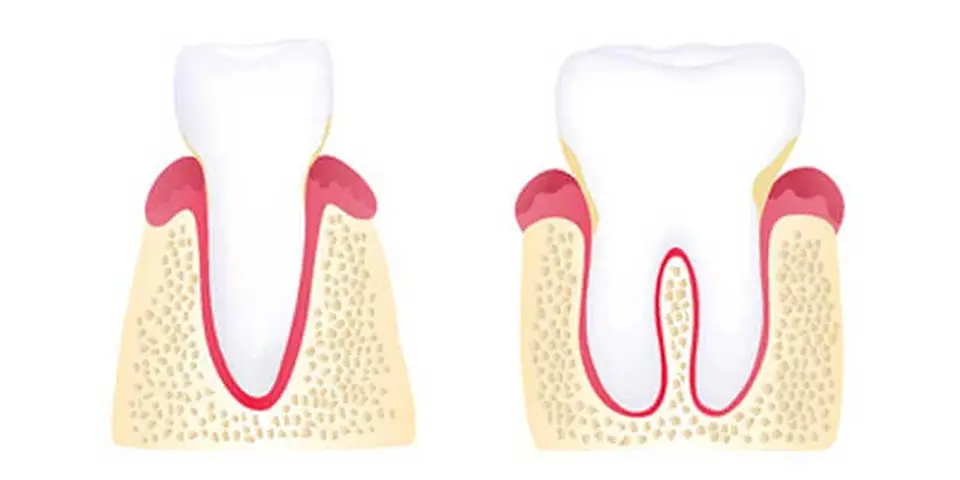
Gingivitis
Gingivitis is the earliest stage of periodontal disease and by far the most common. It is characterized by red, swollen gums that may bleed easily during brushing, flossing, or eating. Typically, gingivitis is treatable with proper dental care and improvements to your daily oral hygiene routine.
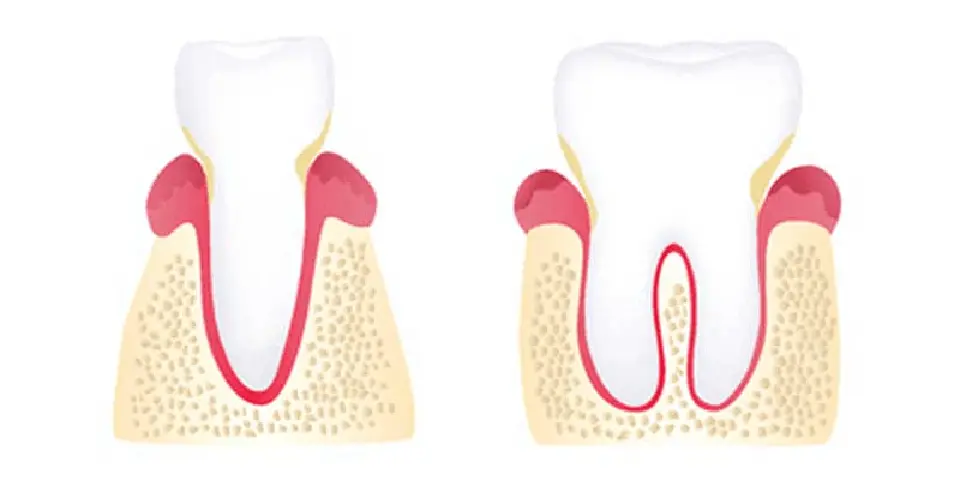
Early Periodontitis
Early Periodontitis occurs when there are visible pockets in the gum tissue and irreversible damage has occurred to the bone and fibers that hold the teeth in place. Some teeth may be loose or unstable, and eating might cause pain in the teeth and gums. A combination of at-home care and restorative periodontal procedures can minimize further damage and preserve the natural structure of the teeth.
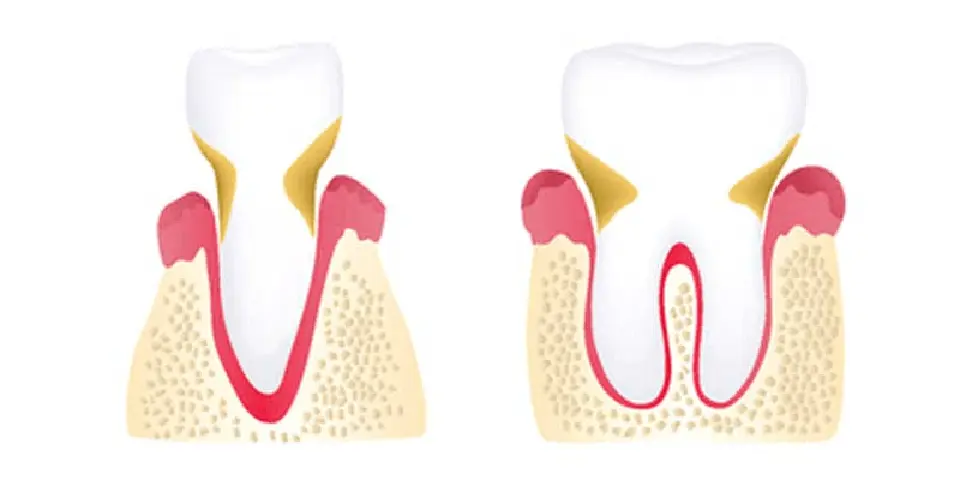
Moderate Periodontitis
The symptoms of periodontitis become more severe as inflammation spreads, and some discomfort may occur. More supporting bone is lost, teeth loosen, and the gums recede further.
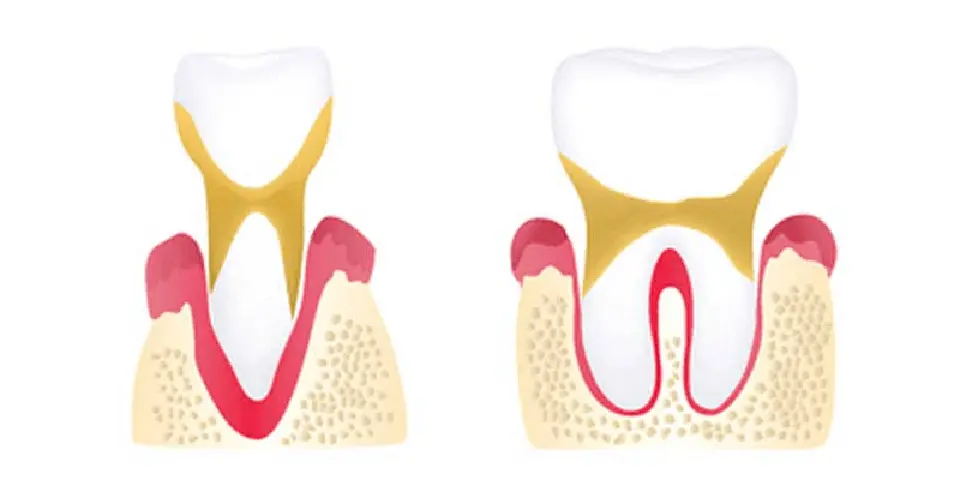
Advanced Periodontitis
Advanced periodontitis is the most damaging stage of periodontal disease at which the life of the natural teeth is very threatened and significant bone grafting procedures may be needed to restore your smile.
Gum Disease Risk Factors
Neglecting to floss or improper flossing often leads to gingivitis, because plaque is allowed to accumulate between the teeth where brushing alone is not enough. Other factors that might contribute to gingivitis and more advanced gum disease include smoking, genetics, diabetes, and use of medications that cause the side effect of dry mouth. Working with a periodontist, you can identify any periodontal disease risk factors you may have and design an at-home routine to address your unique needs.
Treatment Options
Missing teeth can cause the breakdown of the jawbone. Over time this changes the overall shape of your face which usually results in a older appearance. Placement of a dental implant can prevent this from occurring and assuring a more youthful look.
A dental implant is a small titanium screw which replicates the actual root of your original tooth. Once the implant crown is placed it looks, feels and functions similar to your once natural tooth.
No matter what age or reason you may have lost your tooth Dr. Scott H. Froum can replace it using the most advanced up to date dental techniques.
